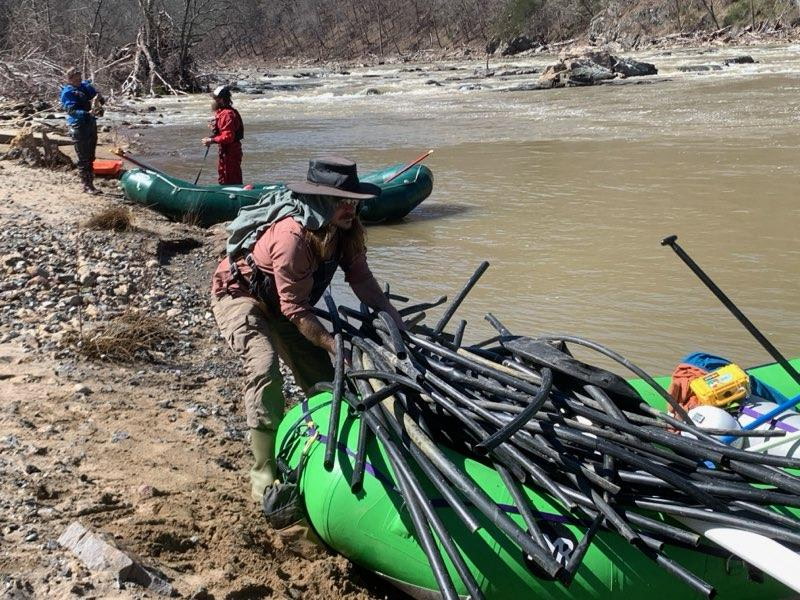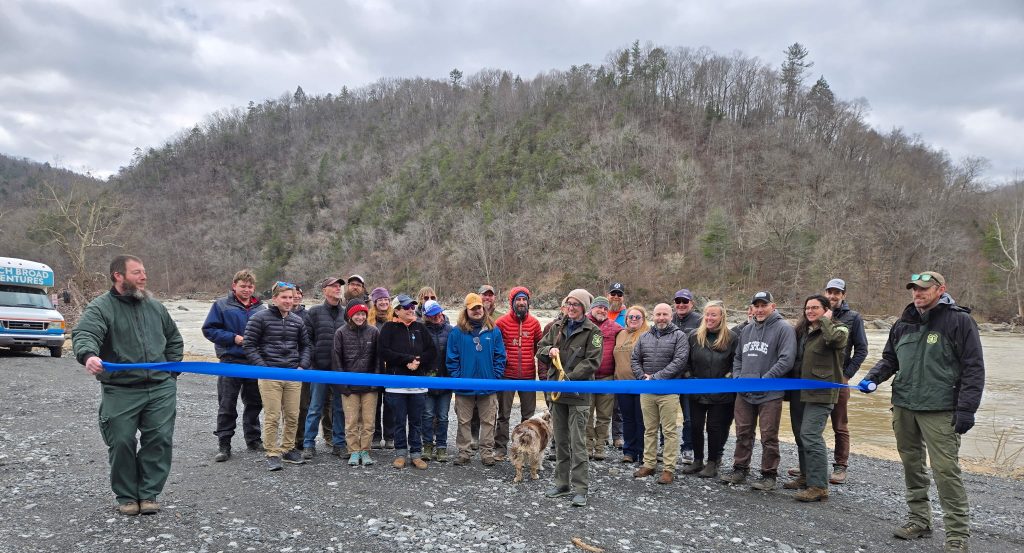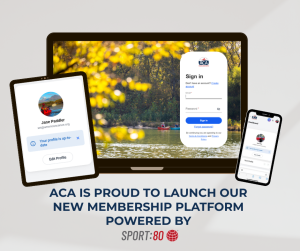
Paddlers supporting MountainTrue cleanup efforts of the French Broad River in North Carolina
In late September 2024, Hurricane Helene brought extensive damage to the southern Appalachian Mountains through historic flooding and high winds. Half a year later, local paddlers in Western North Carolina have continued to step up to help restore the region’s waterways. In the wake of the hurricane, both natural debris and a significant amount of human-made waste now line the riverbanks of Western North Carolina.
Fueled by Their Connection to the Region’s Rivers and Streams, Paddlers Support Their Communities Through Advocacy and Cleanup Efforts
Paddlers have stepped up to support affected public lands and waters. The North Carolina non-profit MountainTrue has organized dozens of cleanups and removed 286,000 pounds of debris from the rivers in Western North Carolina since Hurricane Helene made landfall last September. This has been just the beginning of a monumental effort to restore some of the region’s 1,517 miles of affected rivers—popular for both whitewater and flatwater paddling. Flooding from Helene severely altered these rivers, leaving many in need of restoration before they can fully reopen. Popular stretches of whitewater, like the Nolichucky River, have been so severely altered, access points are currently closed, preventing the public from accessing a treasured resource.
The terrain in Appalachia is steep, winding, and complex. Removing trash along waterways is exceedingly difficult, and trash is currently being removed one raft at a time. The lack of railroad support for debris removal has made cleanup efforts heavily reliant on paddler support.
As part of their efforts, MountainTrue has hired raft guides to help with cleanups, recognizing their knowledge of the river and ability to handle the physical demands of hauling debris. They are also working with American Canoe Association (ACA) certified Swiftwater Rescue Instructors, whose training and expertise have proved invaluable in cleanup and restoration efforts.
Many of the most affected areas are in remote, Class II-IV whitewater stretches that lack road access. ACA Swiftwater Rescue Instructors have been vital to these cleanup efforts, using their training to safely navigate swift-moving currents, assess hazards, and remove debris.
“I feel confident having trained swiftwater rescue technicians on the river with me. From assessing hazards to safely rigging rope systems to ferrying trash across the river, their knowledge and expertise is an incredible asset,” said Jon Stamper, River Cleanup Coordinator at MountainTrue.
A Major Victory: The Stackhouse Boat Launch Reopens
Despite these challenges, the paddling community alongside MountainTrue and the U.S. Forest Service led to the recent reopening of the Stackhouse Boat Launch on the French Broad River. Stackhouse is a vital public and commercial access point and was wiped during Hurricane Helene. To achieve this success, MountainTrue contributed thousands of dollars to bring in gravel and portable toilets, which the Forest Service was unable to supply due to budget restrictions.
“The Stackhouse Boat Launch services one of the most popular stretches of whitewater in the Southeast and sees an estimated 40,000 commercial guests each year,” shared Steven Foy, General Manager of Outpost Operations at the Nantahala Outdoor Center (NOC). “Loss of access to this site would have resulted in a significant loss of income.”
This critical access point is now restored for both private and commercial boaters. Given the extent of the storm damage, the parking capacity at Stackhouse is slightly reduced. The Forest Service is working on a longer timeline to bring the launch back to full capacity. Paddlers are encouraged to carpool and be aware of the potential for increased demand at this access point given that many other access points in the region are also diminished. Prioritizing parking at the Barnard put-in will help minimize pressure on Stackhouse, and the take-out in Hot Springs remains open to the public.
Paddlers can check for updates on closures across the Pisgah National Forest at this link. Outfitters, MountainTrue and others will continue to help spread the word as soon as more is known regarding timelines for further improvements to Stackhouse.

Ribbon cutting ceremony for the re-opening of the Stackhouse Boat Launch with the U.S. Forest Service and MountainTrue
Disaster Recovery Funding
Last December, Congress approved billions of dollars in disaster recovery funds for the Forest Service and the National Park Service to address the full scope of the damage caused by natural disasters. Additional funding for debris removal and small business support may come from North Carolina House Bill 47, the Disaster Recovery Act of 2025 – Part I, which passed and was signed into law by Governor Josh Stein on March 19, 2025.
However, recent layoffs and funding cuts in federal land management agencies have made it more difficult for agencies like the Forest Service, BLM, and National Park Service to use these funds effectively to support communities in rebuilding their outdoor economies. With more funding cuts on the horizon, these agencies face challenges in addressing damages caused by Hurricane Helene and other extreme weather events.
According to the Outdoor Recreation Western North Carolina Outdoor Recreation Participation Survey, “Western North Carolina’s economic output from outdoor recreation visitor spending is $4.9 billion, equivalent to creating approximately 48,000 full-time jobs.” The 2025 season remains uncertain due to damage caused by the hurricane. Many outfitters that once advertised “fun rapids and scenic mountain views” now face a very different landscape. What was once a lush, green corridor is now a barren, rocky landscape with plastic, PVC pipes, and other debris lining the riverbanks.
If key access points and river conditions remain unstable, commercial rafting, kayaking, and fishing trips may face significant disruptions, impacting both the local economy and the thousands of jobs tied to outdoor tourism.
Call to Action
Thanks to the efforts of local paddlers, Western North Carolina’s rivers are on the road to recovery. However, the continued success of these efforts—and the 2025 season—depends on keeping rivers clean, accessible, and safe for all. While much progress has been made, there’s still a lot of work ahead. Here’s how paddlers can help:
Private boaters can contribute to local cleanups by helping ferry trash and debris across the river channel. Subscribe to MountainTrue’s newsletter to find local cleanup events and stay up to date on recovery efforts.
Paddlers with Swiftwater Rescue Training can assist by training volunteers to safely navigate and remove debris in challenging conditions. Contact cleanup@mountaintrue.org for more information.
This is an ongoing, collaborative effort that illustrates the best of the paddling community. These public lands and waters have given a lot to us over the years and now it is our turn to return the favor!
A special thank you to Jon Stamper (MountainTrue), Steven Foy (Nantahala Outdoor Center), and Jamie Ervin (Outdoor Alliance) for contributing to this article and for their commitment to helping outdoor recreation in Western North Carolina thrive in the wake of Hurricane Helene.

